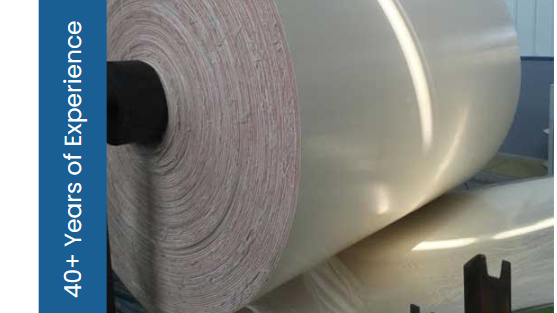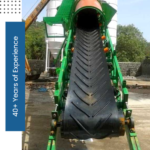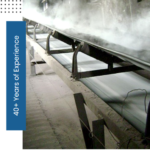In the food industry, maintaining the highest standards of hygiene and safety is paramount. One crucial component of this process is the use of food grade conveyor belts. These specialized belts are designed to transport food products safely and efficiently, minimizing the risk of contamination. To ensure the well-being of consumers and compliance with industry regulations, it is essential to implement proper safety measures when using food grade conveyor belts.
What is a Food Grade Conveyor Belt?
A food conveyor belt is a specially designed belt used in the food processing and handling industry to transport food products from one point to another. Unlike regular conveyor belts, food grade belts are made from materials that comply with strict hygiene standards and regulations. Common materials include PVC, polyurethane, and rubber, all of which are resistant to oils, chemicals, and bacteria.
Safety Measures While Using Food Grade Conveyor Belt
Regular Cleaning and Sanitization
Keeping food grade conveyor belts clean is crucial for preventing the buildup of bacteria and contaminants. Regularly clean the belts with food-safe cleaning solutions, ensuring all residues are removed. Implement a sanitation schedule to prevent the growth of harmful microorganisms.
Proper Training for Operators
Adequate training for conveyor belt operators is vital to ensure they understand the importance of hygiene and safety. Train operators on proper cleaning procedures, the use of personal protective equipment (PPE), and emergency protocols. Emphasize the significance of their role in maintaining a safe food processing environment.
Use of Food Grade Materials
Ensure that the conveyor belts used are made from food grade materials such as PVC, polyurethane, or rubber. These materials are resistant to bacterial growth and can withstand the cleaning and sanitization processes required in the food industry.
Regular Inspections for Wear and Tear
Conduct routine inspections of food grade conveyor belts to identify any signs of wear and tear. Damaged belts can compromise food safety by harboring contaminants. Replace or repair damaged sections promptly to maintain the integrity of the conveyor system.
Proper Lubrication
If your conveyor system requires lubrication, choose food-grade lubricants to prevent contamination. Regularly apply the lubricant as per the manufacturer’s recommendations to ensure smooth operation without compromising food safety.
Avoiding Cross-Contamination
Implement measures to prevent cross-contamination between different food products. Use separate conveyor belts for raw and cooked foods or allergen-containing products. Clean and sanitize the belts thoroughly during product changeovers.
Temperature Control
Some food products require specific temperature conditions during processing and transportation. Ensure that the conveyor system is equipped to maintain the required temperatures, preventing the growth of harmful bacteria and ensuring the quality of perishable items.
Emergency Stop Systems
Install emergency stop systems to quickly halt the conveyor in case of a malfunction or safety issue. Regularly test and maintain these systems to ensure they function effectively during emergencies
The Bottom Line
Food grade conveyor belts play a vital role in maintaining food safety, but effective safety measures are crucial. From meticulous cleaning and training to using food-safe materials and equipment, every step matters.
By prioritizing hygiene, employing proper handling practices, and choosing reliable suppliers like Continental Belting, you can ensure food integrity, protect consumer health, and achieve optimal efficiency in your food processing operations. Remember, prioritizing safety isn’t just a regulation, it’s a recipe for success. Explore our conveyor belts and more on our website now.




